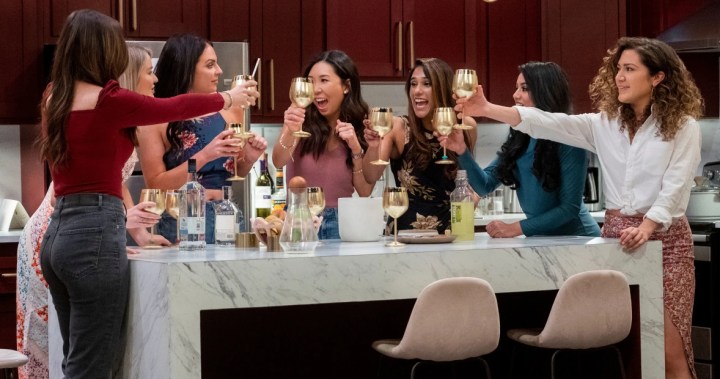A contestant from the second season of Netflix’s Love is Blind reality series is suing the show over what he claims were “inhumane working conditions.”
Jeremy Hartwell is suing Netflix and production company Kinetic Content, claiming that he and other contestants were forced to work 20-hour days and were denied adequate water and food while being plied with alcohol. He also claims cast members were not paid a fair wage.
In an interview with CNN, Hartwell said cast members were “basically locked in the room” for 24 hours straight when they arrived on set, and snacks and water were only doled out after hours of waiting. However, he said, alcohol was always available and producers encouraged contestants to drink on an empty stomach.
“The combination of sleep deprivation, isolation, lack of food, and an excess of alcohol all either required, enabled or encouraged by defendants contributed to inhumane working conditions and altered mental state for the cast,” Hartwell said in his complaint, which was obtained by People.
“At times, defendants left members of the cast alone for hours at a time with no access to a phone, food, or any other type of contact with the outside world until they were required to return to working on the production.”
Love is Blind contestants, 15 men and 15 women, each play out of their own isolation room and are paired with contestants in other rooms. Through a series of conversations, they figure out if they have a connection with another player and, in some cases, get engaged and even married to another player without having laid eyes on them.
A photo of the ‘pods’ contestants work out of on the set of ‘Love is Blind.’.
Netflix
Hartwell says production was heavily involved from the moment contestants boarded their flights to Los Angeles.
“We were constantly told not to talk to each other, not to talk about things while we were waiting for people to finish getting their bags and get into the shuttle to be taken to orientation,” he said.
Jeremy Hartwell, who appeared in Season 2 of ‘Love Is Blind,’ has filed a lawsuit against Netflix and the producers of the series.
Ser Baffo / Netflix
The lawsuit, filed in Los Angeles County Superior Court, claims contestants should have been treated as employees rather than independent contractors under state law, as producers were the ones to make all the decisions about how long the cast worked and how filming was conducted.

Hartwell is seeking unpaid wages plus compensation for working overtime and missing meal breaks and periods to rest. He is also seeking class-action status on behalf of all the show’s participants.
He also addressed the lawsuit on his Instagram feed last week, posting video to thank other Love is Blind alum who have reached out to him to “corroborate the accounts of the complaint in an abusive environment.”
Kinetic Content responded to the lawsuit, telling Variety that there is “absolutely no merit” to the allegations.
“Mr. Hartwell’s involvement in Season 2 of Love is Blind lasted less than one week. Unfortunately, for Mr. Hartwell, his journey ended early after he failed to develop a significant connection with any other participant.
“While we will not speculate as to his motives for filing the lawsuit, there is absolutely no merit to Mr. Hartwell’s allegations, and we will vigorously defend against his claims.”
In the lawsuit, Hartwell also alleges that cast members were paid a flat rate of US$1,000 per week, even though they worked up to 20 hours per day, seven days a week.
Hartwell did not last long on the season — he only appeared in final cuts of the show — but another contestant, Danielle Ruhl, has also spoken out about how she was misrepresented in Season 2, reports Business Insider.
“I begged not to be filmed during this sensitive situation,” Ruhl wrote on Instagram in February, talking about how she asked producers not to film her during a panic attack, but they did it anyway.
“Nick (Ruhl’s husband whom she married after meeting him on the show) and I begged to leave once we found out how filming worked. How I was represented on TV is not an accurate representation of who I am as a person.”
In another Instagram story, Ruhl said “there were two days they stopped giving us food and water,” and “what ur (sic) seeing is many ppl being tortured to fit a narrative preconceived.”
Lawyer Chantal Payton of Payton Employment Law, the L.A.-based firm that is representing Hartwell, told NBC News in a statement that producers of the show “intentionally underpaid the cast members, deprived them of food, water and sleep, plied them with booze and cut off their access to personal contacts and most of the outside world. This made cast members hungry for social connections and altered their emotions and decision-making.”
Netflix has yet to respond to the lawsuit or Hartwell’s claims.
© 2022 Global News, a division of Corus Entertainment Inc.




